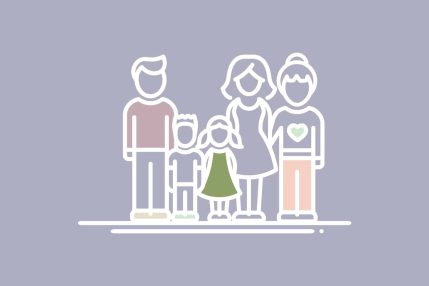7 June 2022
The recent sperm donor dispute case of MacDougall v SW & Ors (sperm donor: parental responsibility or contact) (24 May 2022) highlights the problems that can arise following privately arranged sperm donation in the absence of specialist legal advice and clear expertly drafted bespoke known donor agreements. The case concerned four children whose biological father, James MacDougall, acted as a private sperm donor to women who were all (or had been) in lesbian relationships. Legal disputes arose because Mr MacDougall sought parental responsibility and child arrangements orders in respect of the children against the wishes of their mothers in three linked cases. Unusually, the Judge decided to name Mr MacDougall on public interest grounds, ruling that the public benefit in naming him outweighed the risk of identification of the children. The Judge did so because Mr MacDougall donated his sperm privately to numerous women despite suffering from Fragile X Syndrome, knowing that he would not have been permitted to donate his sperm through a licensed fertility clinic, and because she had no confidence that he would fully explain the true implications of his Fragile X Syndrome to any other woman.
Sperm donation: background
Mr MacDougall advertised on a social media page for lesbian women seeking a sperm donor. The mothers were all in their early 20s when they first made contact with Mr MacDougall and they were all, or had been, in lesbian relationships. Mr MacDougall informed the Court that over a four year period he had acted as a private sperm donor in a large number of cases and that he was the father of 15 children who ranged in age from a few months old to nearly four. The most recent child was born in February 2022.
Fragile X Syndrome
The Court was also made aware that Mr MacDougall (aged 37) had Fragile X Syndrome, an inheritable genetic condition that causes developmental problems and cognitive impairment. As a result, he had been diagnosed as having learning difficulties and being on the autistic spectrum. Furthermore, the Court was informed that there were significant concerns about the development of child (R), who was nearly 3 years old, as she was non-verbal and her behaviour was challenging.
Sperm donor agreements
In or around 2018, mothers SW and EG (then a couple) signed a 3 page written agreement with Mr MacDougall. The agreement stated on page one that Mr MacDougall would have no legal rights over the child nor any right to contact with the child. However, it was written in closely typed highly legalistic language that was difficult to read. Whilst on page three of the agreement it recorded that Mr MacDougall had Fragile X Syndrome, there was no explanation of what this meant. SW told the court that she had difficulty reading, which was borne out by her oral evidence, and that she did not read the whole agreement and did not read the part about Mr MacDougall’s Fragile X Syndrome.
SW went on to give birth to child (R) in October 2018. Unfortunately, her and EG’s relationship subsequently broke down and they split up. Mr MacDougall first saw R two weeks after the birth and the parties disputed how often he saw R over the next 16 months and the terms of that contact. The Court found that both SW and EG had an extremely confused understanding about the law on parental rights and that they believed Mr MacDougall could give his parental rights to EG.
In early 2020, SW and her new partner decided that they wanted to have another child and they asked Mr MacDougall to be their sperm donor. This time, they did not sign a written agreement. Mr MacDougall said he agreed on the basis that he would have contact with this child but SW disputed this. SW became pregnant and had some ongoing contact with Mr MacDougall until June 2020 when any friendship between them broke down. Mr MacDougall then had no subsequent contact with R and never met P who was born in December 2020.
EG (formerly SW’s partner) formed a new relationship and they decided to have a baby and they asked Mr MacDougal to be their sperm donor as well. Again, they did not enter into a written agreement with Mr MacDougall, although EG gave evidence that she asked him for one and that he kept making excuses. EG also gave evidence that she was absolutely clear that Mr MacDougall would have no contact with the baby which he accepted and that she was so desperate to have a child that she went ahead with the sperm donation in the absence of a written agreement. EG gave birth to N in January 2021 and N had no contact with Mr MacDougall.
Mr MacDougall also became a sperm donor for a woman known as KE via the same social media page. They did not enter into a written agreement either and KE gave birth to B in July 2018. In September 2018, KE commenced a relationship with Mr MacDougall and he had contact with B throughout 2019. However, at the end of February 2019, KE applied to court for a non-molestation order against Mr MacDougall, which was subsequently granted in March 2019 forbidding him from contacting KE directly or indirectly except for the purpose of arranging time with B. KE proceeded to issue a further application for a non-molestation order against Mr MacDougall in early December 2021.
Sperm donor legal dispute
Mr MacDougall made applications to the English Family Court at the end of March 2021 for child arrangements orders and parental responsibility orders in respect of R and P. At the beginning of June 2021, he then then made the same applications in respect of P.
Mr MacDougall had also applied for a child arrangements order in respect of B at the end of October 2019, which resulted in an order that he have contact once per week and overnight contact every second weekend, half the holidays and alternate Christmas and granted him parental responsibility. That contact was suspended by KE in January 2022 due to concerns that B had unexplained bruises when he returned from contact with Mr MacDougall (and this linked case was then adjourned pending further enquiries).
In determining matters, the Judge took into account the history of events and the written agreement that SW and EG had signed with Mr MacDougall before conceiving R. The Judge also took into account “the fundamental irresponsibility of JM [Mr MacDougall] acting as a sperm donor whilst knowing that he had Fragile X Syndrome, an inheritable condition, without at least making it entirely clear to the mothers concerned the implications of Fragile X. JM knew that he could not be a sperm donor through a clinic because of his condition. He told the Guardian that he thought Fragile X was not serious and it was for the mothers to do the research”.
The Judge went on to rule that Mr MacDougall “took advantage of these young women’s vulnerability and their strong desire to have children. This failure to take responsibility for his own condition, and to have any apparent concern for the long-term impact both on the mothers and potentially the children, is a factor in concluding that JM should not be given parental responsibility for the children”. The Judge then proceeded to refuse Mr MacDougall’s applications for a parental responsibility order and contact in respect of R and refused the same applications in respect of P and N. The Judge also made an order banning Mr MacDougall from bringing further court applications in respect of these children for three years.
Lastly, the Judge took the unusual decision to name Mr MacDougall stating “There are strong grounds for naming JM. All three mothers and the Guardian support naming. Although JM told the Court that he had ceased to act as a sperm donor, a social message from February 2022 suggested that he was still offering his services at that date. In light of JM’s lack of honesty to his own mother, Mrs M, and his belief that he has done nothing wrong, he said he would be a sperm donor for any of the existing mothers so the children would have a ‘sibling connection’, I have no confidence in him fully explaining to any woman the true implications of his Fragile X Syndrome. There is therefore a very specific benefit in him being named in the hope that women will look him up on the internet and see this judgment”.
Fertility and family law
This legal ruling highlights the risks and problems that can arise when building a family through private sperm donation in the absence of expert legal advice and clearly written and bespoke known donor agreements. As these linked cases demonstrate, all sorts of issues can arise triggering disputes about legal status, parental responsibility, contact, care and welfare of a child. Feelings and situations can also change over time. As such, parties embarking upon family building through private sperm donation should obtain independent specialist legal advice and enter into a clear expertly drafted bespoke known donor agreement from the outset to identify, understand and manage the complex issues arising.
Need an expert fertility lawyer or family lawyer? For further information and assistance please contact Louisa Ghevaert by email louisa@louisaghevaertassociates.co.uk or by telephone +44 (0)20 7965 8399.




